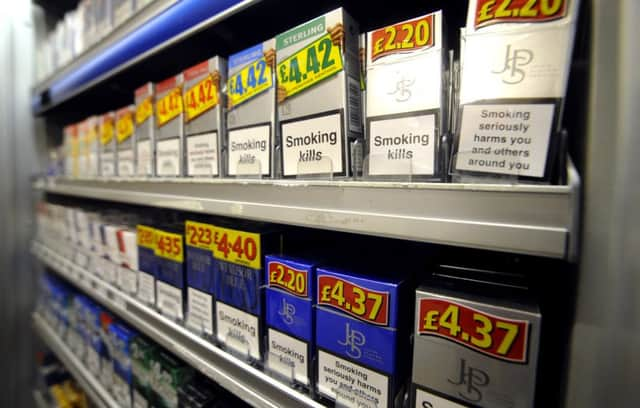Mo Razzaq: The law of unintended consequences hits hard


April was a grim month for the Scottish high street. We saw the collapse of the clothing chain BHS, putting 164 stores at risk of closure, quickly followed by the collapse of the fashion retailer Austin Reed, putting a further 100 stores at risk. The closure of BHS is particularly worrying since large department stores often act as “anchors” for other shops. The closure of a department store may reduce high street footfall, leading to reduced revenue for other shops.
Whilst out-of-town developments and online shopping tend to get the blame for the turmoil of the high street, there is also a significant threat from overzealous politicians, both national and local, who often seem unaware of the fine balance between profit and loss for many shops when they devise new regulations.
Advertisement
Hide AdAdvertisement
Hide AdThe tragedy is that well-intentioned legislation and regulation often produces unexpected results and harmful side-effects. As a local councillor in South Lanarkshire I see this at first hand. Regulations devised in the “ivory towers” of government departments and council headquarters often produce very different results from what was intended. This is why keeping close to business is so essential.
One of the clearest examples of clumsy regulation that is doing more harm than good can be seen in the long campaign by EU, national and local health officials to introduce more and more regulations on the sale and use of tobacco. Despite the fact that tobacco use in Scotland has been falling consistently since the 1960s, long before the restrictions on tobacco were introduced, regulations on tobacco sale and use keep growing. And every time the government introduces new regulations for retailers they encourage consumers to use the black market, since the black market is of course exempt from all regulation.
The abolition of ten-packs of cigarettes and small packs of hand rolling is a particularly infuriating example of this clumsy regulation. We have found nobody who supports this abolition, including the health charities.
The idiocy of the abolition of small packs is merely a symptom of a bigger problem, a real disconnect between government and small business. How can this be resolved? The responsibility for close engagement between politicians and small retailers is actually a two-way street. As retailers we must take the initiative to speak to our politicians, alerting them to bad proposals and current challenges. Trade bodies like the Tobacco Retailers’ Alliance (TRA) have an essential role in this engagement; we help busy retailers keep in contact with busy politicians.
The TRA is currently surveying its members; the preliminary results show how little faith retailers have in government. Only 6 per cent of respondents believe the government cares sufficiently about small shops. Whilst 84 per cent of retailers believe that illicit tobacco represents a threat to their business, only 10 per cent have confidence that their local trading standards teams are effective in tackling this illicit trade. Retailers want the government to focus on the illegal trade, but yet again the government is proposing to make life harder for responsible retailers.
What can retailers do about the current challenges? For one, I urge retailers to respond to the current licensing consultation themselves by emailing [email protected] with comments and concerns. I would also urge them to contact their local MSP and MP.
Finally, this is certainly a challenging time for retailers, but also a great time to join the TRA. Only by joining together and acting collectively can small shops have a big influence.
• Mo Razzaq, Scotland spokesperson for the Tobacco Retailers’ Alliance, is a newsagent and a councillor on South Lanarkshire Council. Joining the TRA is free to all independent retailers and can be done online here: www.tralliance.org.uk/profile/register/. The TRA is supported by the Tobacco Manufacturers’ Association